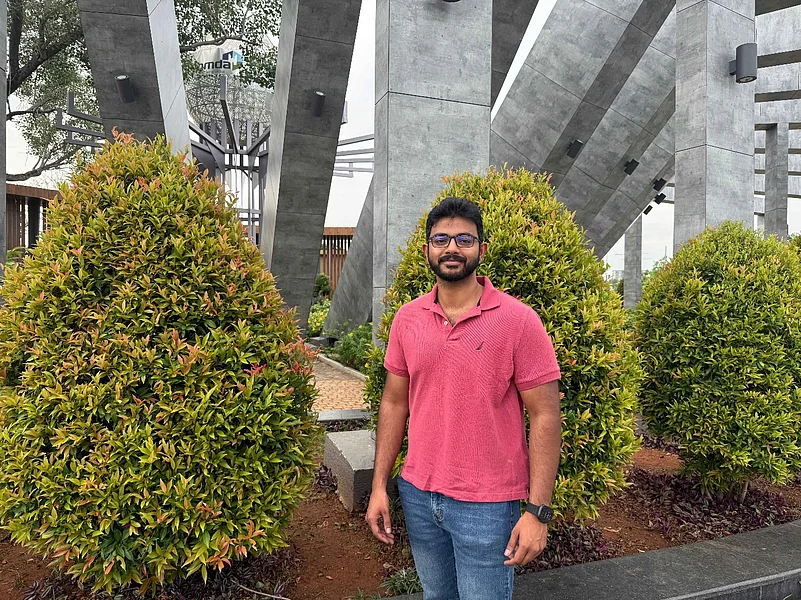In an industry where burnout and tunnel vision are occupational risks, the story of an engineer earning two advanced degrees while leading enterprise-level DevOps transformation feels like a refreshing anomaly. As organizations worldwide chase innovation through automation and cloud modernization, the deeper question often gets unanswered: Who are the people behind the pipelines? And how are they evolving with the technology they build?
Abhiram Reddy is a prominent figure in the engineering world. While many professionals work to fit in a certification between product releases, Reddy earned two postgraduate degrees—a Master of Science in Information Technology and an MBA in Management Information Systems—while simultaneously leading critical infrastructure projects at scale. His story challenges the common belief that professional development and academic growth must come at the cost of one another.
Reddy's journey represents more than personal achievement. It reflects a shift in how professionals approach career development in an era where continuous learning isn't optional—it's survival. Most professionals encounter a difficult decision: advance their career or pursue higher education. He refused to accept this limitation.
"Balancing education and career is more than just time management—it's about purpose alignment," Reddy explains. "Pursuing higher education while managing production-critical infrastructure taught me to operate with intense focus and agility." His approach wasn't about working extra hours. Instead, he discovered that technical innovation and academic learning create a powerful synergy. The mindset of continuous learning enhanced his professional work, while real-world challenges enhanced his academic research.
At his workplace, Reddy doesn’t just automate processes—he engineers ecosystems. He introduced infrastructure-as-code models and implemented reproducible, event-driven architectures to reduce infrastructure drift and enhance compliance. “Automation isn’t just about speed—it’s about resilience and governance,” he explains. One of his key contributions was an automated rehydration workflow that eliminated manual server patching, cutting deployment times by 30%.
He also restructured legacy security setups into YAML-based schemas, reducing vulnerabilities by a striking 30%. These aren't just technical wins—they're cultural ones. Reddy’s work has transformed internal practices, driving both agility and accountability across teams.
The scale and diversity of the projects show major impact. From deploying region-based API gateways to implementing CI/CD pipelines powered by GitHub Actions, each initiative aimed to simplify complexity. His cloud monitoring integrations enhanced resource utilization by 20%, while new rate-limiting systems led to a 15% reduction in downtime. But for Reddy, the metrics are just one layer.
“What made these projects big wasn’t just complexity—it was their reach,” he notes. “They transformed how teams operate, making infrastructure safer and more intuitive.” That transformation extended to incident response, where streamlined alert systems proactively prevented outages—saving time, money, and mental bandwidth for engineering teams.
Perhaps the most key aspect of his journey is not just the scale of the work, but the demanding environment in which it all took place. Juggling dual degrees while leading infrastructure initiatives isn’t a balancing act—it’s a calculated sprint on a tightrope. And he succeeded.
“I turned pressure into progress,” he says. “I optimized my own routines like I would a system—automating tasks, staying lean, and focusing on outcomes.” His story reflects a deeper truth about modern engineering: success is less about brute force and more about systems thinking, whether applied to servers or the self.
While managing critical infrastructure, Reddy authored and published over 20 scholarly articles on DevOps, cloud automation, and intelligent system design. His academic contributions aren’t secondary—they’re extensions of his engineering practice. His paper, Terraform-Driven Kubernetes Cluster Management in AWS, distills years of infrastructure experience into an actionable, peer-reviewed framework. "This publication was not only a reflection of my technical depth, but also a product of disciplined time management and applied academic learning," Reddy reflects. "It allowed me to formalize best practices that I developed on the job and share insights with a broader technical audience."
Managing enterprise-grade infrastructure while pursuing dual degrees presented unique challenges. The pressure could have led to burnout, but Reddy discovered an unexpected truth about high performance under pressure. "I realized that burnout doesn't come from doing too much—it comes from doing things that aren't aligned," he explains. “By staying focused on my purpose—engineering smarter systems and growing academically—I was able to channel pressure into meaningful, measurable outcomes.”
His solution involved more than time management. He automated his own routines, optimized his schedule, and maintained what he calls a "high-performance mindset." This approach allowed him to complete academic coursework and research publications without missing delivery milestones at work.
Reddy's experience offers insights into emerging trends in professional development. He sees DevOps evolving into a new hybrid discipline—that integrates engineering, governance, and ethical implementation. “We’re moving toward self-healing infrastructure as the new normal,” he says. But he’s quick to emphasize the human element. “Adaptable engineers who can speak both tech and business will define the next decade.” This future requires professionals who can bridge technical expertise with strategic thinking—exactly what his dual educational approach cultivated.
Reddy's experience challenges the either-or mentality that forces professionals to choose between career advancement and educational growth. His approach shows that continuous learning can enhance rather than compete with professional responsibilities.
In an industry facing talent shortages, his story suggests a different path forward—one where technical expertise and strategic thinking develop in tandem rather than in isolation.
About Abhiram Reddy:
Abhiram Reddy is a DevOps leader who consistently combines technical expertise with academic achievement. While managing enterprise-grade infrastructure and driving large-scale automation initiatives, he earned dual postgraduate degrees—an MS in Information Technology and an MBA in Management Information Systems. His innovations, from infrastructure-as-code to event-driven architectures, have reduced system drift, enhanced compliance and team agility. With over 20 published papers on cloud and DevOps, Reddy exemplifies how continuous learning can power real-world impact. His journey redefines modern engineering, showing that strategic thinking and technical depth can evolve together to achieve significant outcomes in today’s tech-driven world.














